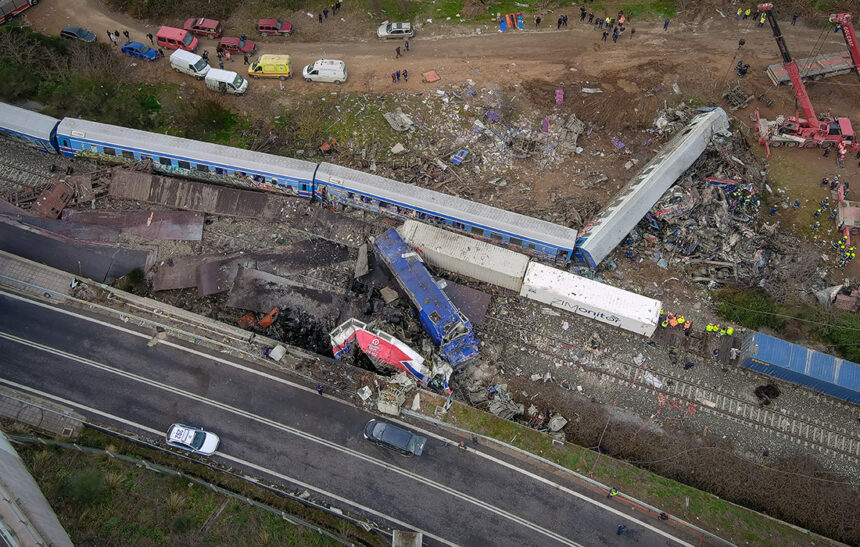It concerns the upgrading of the signaling – remote control system in the Greek railway network
After an investigation of about a year, the office of the European Authorized Public Prosecutors of Athens identified criminal responsibilities against specific persons connected to the 717 convention which concerns the upgrading of the signaling – remote control system in the Greek railway network and the omissions in its implementation are linked to the tragic accident in Tempi and it is estimated that the non-implementation caused damage to the Greek public and the European Union of more than 15 million euros.
The European Public Prosecutor’s Office proceeded to bring criminal proceedings against 23 persons, 18 of whom are public servants, for a series of criminal acts including fraud, infidelity, false certification with the purpose of obtaining illegal benefits, moral complicity in fraud and false certifications .
After the explanations given by the persons allegedly involved in the case as suspects, criminal proceedings were brought against:
* 14 civil servants of ERGOSE, for fraud related to grants. Two of them are also accused of making a false statement with the purpose of obtaining an unfair advantage for another;
* 4 civil servants of the Hellenic Administrative Authority of the Operational Program for Transport Infrastructure, Environment and Sustainable Development (EYD/EP-YMEPERAA), for infidelity of funds;
* 5 legal representatives and employees of the Undertaking Consortium, for moral complicity in fraud related to the grants and moral complicity in false certification with the purpose of providing an unfair advantage to another.
The prosecutor’s investigation seems to show evidence of wrongful execution of the disputed contract.
More specifically, the charges relate to the execution of the Contract for the restoration of the Signaling-Remote Control System of the Athens-Thessaloniki-Promachonas railway section, which was signed in 2014, with a time horizon of completion in 2016 – known as “Contract 717”. In 2019, a Supplementary Contract was signed on the same project, amending the original physical object of Contract 717. The Supplementary Contract provided for the construction of a completely new Signaling system with new telemetry units to enable communication and data transmission between of the railway stations, as well as from the railway stations to the control centres.
The two Contracts were co-financed by the Cohesion Fund of the EU, within the framework of the “Signaling-Remote Control Modernization and installation of the European Train Control System (ETCS)” program, with the contribution of the EU. to amount to 85%.
According to the investigation, a total of seven illegal extensions of the original Contract were granted, according to the decisions of the Board of Directors of ERGOSE. For this reason, more than nine years after the signing of Convention 717, the project was still not completed.
Based on the evidence collected by the prosecution authorities, it is assumed that the employees of the Administrative Authority, who were responsible for the management of the funds, acted in violation of the principles of sound management of these assets. Indeed, according to the assessment of the public prosecutors, despite the fact that the data submitted by the employees of ERGOSE was clearly incorrect and incomplete, the civil servants of the Administrative Authority approved the granting of the corresponding aids, causing damage to the financial interests of the EU . and the Greek State in the amount of more than 15.6 million euros.
The European Public Prosecutor’s Office forwarded to the competent Greek prosecutor a copy of the case file in order to investigate the possible performance of the act of breach of duty by the Inspectors-Controllers of the Hellenic National Transparency Authority (NAT) of Greece, who were assigned by the national Prosecuting Authorities to carry out an audit regarding with the execution of Convention 717. The European Public Prosecutor’s Office decided to refer this new case to the competent Greek authorities, for their own further legal actions, as the facts that are the subject of this new investigation do not constitute a criminal offense within the competence of EPPO.
The judicial investigation was assigned to the European investigator in Greece, Christina Salappa, while already last summer the European Public Prosecutor’s Office, as it was due, had forwarded to the Parliament the case file regarding the political figures.




